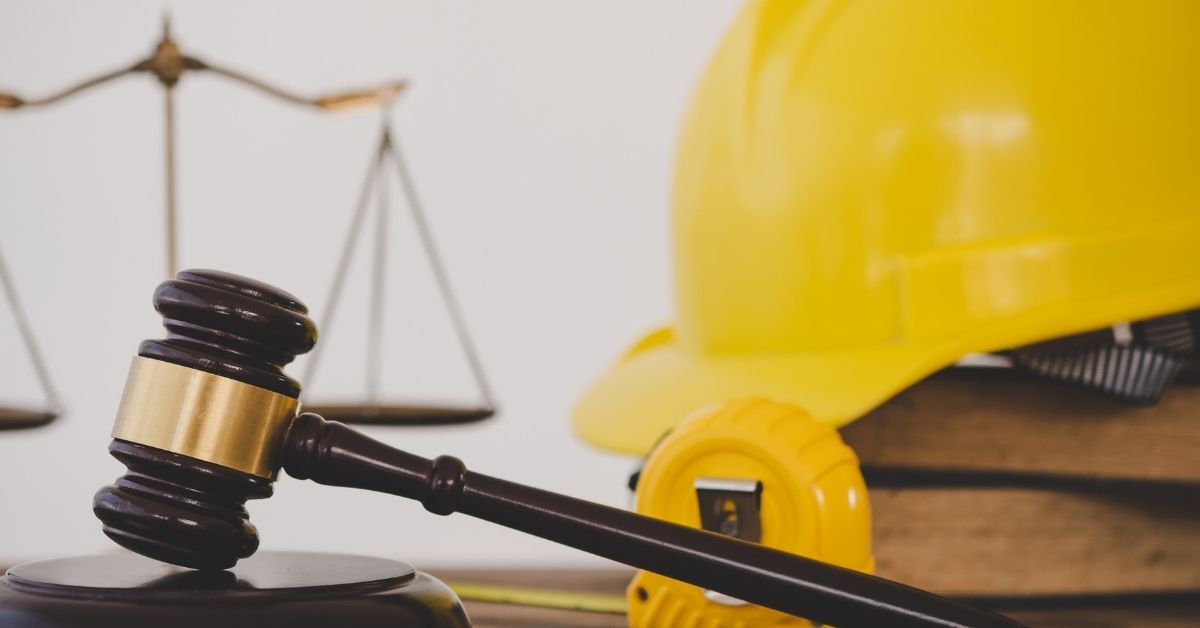National Bike Month: Safety Tips and Legal FAQs

It’s May, which means it is National Bike Month! Every May, communities across the country celebrate the joys of biking—everything from its health benefits to its positive impact on the environment and our overall well-being. As we embrace this month-long celebration, it’s important to explore an essential aspect of biking: safety and legal considerations, especially in the unfortunate event of a bike accident.
At B|B Law Group, we recognize the importance of promoting bike safety and providing legal guidance for cyclists. In this blog post, we’ll address frequently asked questions (FAQs) related to bike accidents. Whether you’re an avid cyclist, a commuter, or someone considering taking up biking, understanding your rights and responsibilities is crucial. Let’s explore key aspects of bike accidents and legal considerations to ensure a safe and informed biking experience.
Why National Bike Month Matters
National Bike Month is not just about celebrating biking; it’s also about raising awareness of bike safety. Biking offers numerous benefits, including reduced carbon emissions, improved physical health, and enhanced community engagement. According to the League of American Bicyclists, National Bike Month aims to showcase the many benefits of biking and encourage more people to give it a try.
During this month, various events and activities are organized to promote bike safety and advocacy. It’s a time when communities come together to emphasize the importance of sharing the road responsibly and respecting cyclists’ rights. By participating in National Bike Month, we contribute to building safer and more bike-friendly communities.
Bike Accident FAQs For National Bike Month
What Should I Do If I’m In a Bike Accident?
If you find yourself in a bike accident, prioritize your safety and well-being. Here’s what you should do:
- Seek medical attention immediately, even if injuries seem minor.
- Contact the police to report the accident and request an incident report.
- Document the scene by taking photos of the vehicles involved, your injuries, and any road conditions that may have contributed to the accident.
- Obtain contact information from witnesses.
- It’s essential to consult with a bike accident lawyer promptly. A legal professional can guide you through the necessary steps and protect your rights when dealing with insurance companies and potential legal claims.
Who is Liable in a Bike-Car Collision?
Determining liability in a bike-car collision depends on various factors, including traffic laws and the circumstances of the accident. In general:
- The driver may be liable if they were negligent or violated traffic laws (e.g., speeding, running a red light, or failing to yield to cyclists).
- Cyclists must also follow traffic laws and exercise reasonable care while riding.
- Liability can sometimes be shared between the cyclist and the driver, depending on the specific details of the accident. Consulting with a bike accident lawyer is crucial for a thorough evaluation of liability and potential legal actions.
What If The Bike Accident Was a Hit-And-Run?
Hit-and-run accidents can be particularly challenging for cyclists. If the driver flees the scene:
- Immediately report the incident to the police.
- Document as much information as possible, including the vehicle’s make, model, color, and license plate number (if visible).
- Inform your insurance company and discuss uninsured motorist coverage.
- A bike accident lawyer can assist in navigating the complexities of hit-and-run cases, ensuring that you understand your legal options for seeking compensation.
How Do I Handle Insurance Claims After a Bike Accident?
Dealing with insurance companies after a bike accident can be daunting. Here’s what you should consider:
- Notify your insurance company about the accident.
- Be cautious when providing statements or accepting settlements from insurance adjusters.
- Consult with a bike accident lawyer before signing any documents or agreeing to a settlement.
- An experienced lawyer can negotiate with insurance companies on your behalf and ensure that you receive fair compensation for your injuries and damages.
Can I Sue for Compensation After a Bike Accident?
Yes, you may be entitled to compensation if you’ve been injured in a bike accident due to someone else’s negligence. Compensation can cover:
- Medical expenses (hospital bills, rehabilitation costs).
- Lost wages or income due to the inability to work.
- Pain and suffering.
- Consulting with a bike accident lawyer is essential to determine the viability of a personal injury claim and understand the potential compensation you may be entitled to.
How do I Prove The Other Party Was at Fault in a Bike Accident?
Proving fault in a bike accident requires collecting evidence and building a strong case. Key steps include:
- Gathering witness statements and contact information.
- Preserving physical evidence (bike damage, clothing, etc.).
- Obtaining police reports and medical records.
- A bike accident lawyer has the expertise to investigate the accident, assess liability, and present compelling evidence to support your claim.
Legal Considerations for Cyclists in National Bike Month
Cycling is not only a popular mode of transportation and recreation but also a way of life for many enthusiasts. However, being a cyclist comes with certain legal considerations that every rider should be aware of to ensure safety and compliance with the law. Let’s explore the rights and responsibilities of cyclists, common bike accident injuries, and preventative measures to avoid accidents.
Rights and Responsibilities of Cyclists
Cyclists have the right to share public roads with motor vehicles, pedestrians, and other users. However, with this right comes responsibilities to ensure safety for themselves and others. Adhering to traffic laws is essential for maintaining order and preventing accidents. Here are some key rights and responsibilities of cyclists:
As a cyclist, you have the right to use public roads like any other vehicle, but you must also obey traffic signals, signs, and lane markings. Wearing appropriate safety gear, such as helmets and reflective clothing, is not only a best practice but often required by law to enhance visibility and protect against head injuries. Using hand signals to indicate turns and maintaining awareness of your surroundings are critical for communicating your intentions to drivers and pedestrians.
Understanding and respecting these rights and responsibilities not only promote safe biking practices but also contribute to harmonious sharing of road space among all users.
National Bike Month: Common Bike Accident Injuries
Despite taking precautions, bike accidents can result in a range of injuries, some of which can be severe. Understanding these potential injuries is important for cyclists to be prepared and seek timely medical attention if necessary. Here are some common bike accident injuries:
Head Trauma:
Head injuries are a significant risk in bike accidents, even at low speeds. Wearing a properly fitted helmet can greatly reduce the risk of serious head trauma.
Fractures:
Broken bones, particularly in the arms, legs, and collarbone, are common in bike accidents due to falls or collisions.
Soft Tissue Injuries:
Sprains, strains, and contusions can occur from impact or sudden movements during a bike accident.
Recovery from bike accident injuries often involves medical treatment such as X-rays, casts, physical therapy, or even surgery in severe cases. It’s important for cyclists to prioritize their health and follow medical advice for a full recovery.
Preventative Measures to Avoid Accidents
While accidents may be unpredictable, cyclists can take proactive steps to minimize risks and enhance safety on the road. Prevention starts with visibility and awareness of potential hazards. Here are some preventative measures every cyclist should consider:
Increase Visibility:
Wear brightly colored clothing during the day and use reflective gear and bike lights, especially when riding in low-light conditions or at night. Being visible to motorists significantly reduces the risk of collisions.
Stay Alert:
Pay close attention to your surroundings and anticipate potential hazards such as parked cars, opening doors, or sudden lane changes by vehicles.
Respect Traffic Laws:
Obey traffic signals, stop signs, and lane markings. Use designated bike lanes when available and exercise caution when sharing the road with motor vehicles.
By taking these preventative measures and staying informed about common risks, cyclists can enjoy a safer riding experience and contribute to overall road safety for everyone.
Why Consult a Bike Accident Lawyer?
Navigating the legal aftermath of a bike accident can be complex and overwhelming. Here’s why consulting a bike accident lawyer is crucial:
Legal expertise:
A lawyer specializing in bike accidents understands relevant laws and regulations.
Protection of rights:
A lawyer advocates for your rights and ensures that you receive fair compensation.
Negotiation with insurance companies:
A lawyer can handle negotiations with insurance companies to maximize your compensation.
Experience with bike accident cases:
Lawyers who specialize in bike accidents have the experience and resources to build a strong case on your behalf.
Promoting Safe Cycling Through Legal Awareness
As we celebrate National Bike Month, let’s prioritize bike safety and raise awareness of legal considerations surrounding bike accidents. Biking is a rewarding activity that offers numerous benefits, but accidents can happen.
Knowing your rights and responsibilities as a cyclist is essential for ensuring a safe and enjoyable biking experience Consult with a bike accident lawyer at B|B Law Group for personalized legal guidance and support. Our bike accident attorneys are committed to assisting cyclists in navigating the complexities of bike accident claims. We offer free consultations to discuss your case and provide insight into your legal options. Don’t hesitate to reach out – we’re here to help you obtain the compensation you deserve and advocate for your rights.
Let’s make National Bike Month a time for promoting bike safety and advocating for the rights of cyclists. Together, we can create safer roads and communities where biking is not only celebrated but also protected by knowledgeable legal professionals.


